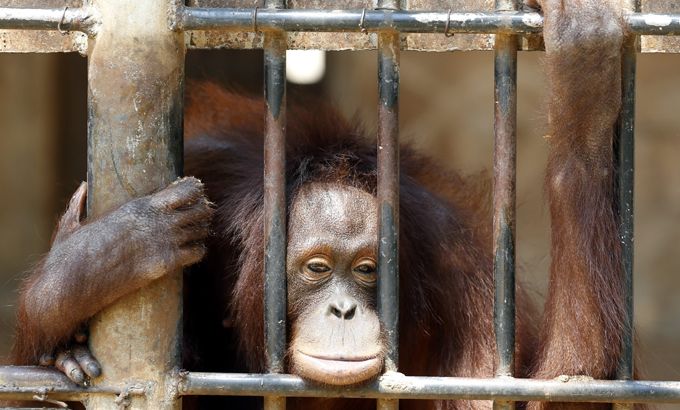
Can CITES come to nature’s rescue?
We examine if the global conservation summit can offer a meaningful respite for threatened wildlife.
A global convention on protecting the world’s endangered species looks like it will be dominated by how to save elephants and rhinos.
|
“There is definitely a drive in recent years due to the high rise in wildlife crime. We have seen high political interest in wildlife crime which has historically been a low-risk-high-profit crime. Definitely countries are working on strengthening their legislation using different kinds of legislation in support of each other to secure stronger deterrent sentences.“ – Ben van Rensburg, CITES enforcement support |
The huge demand in Asian countries for ivory tusks and horns has created a vast network of poachers that threatens the great beasts with extinction.
Keep reading
list of 4 itemsAfter the Hurricane
World’s coral reefs face global bleaching crisis
Why is Germany maintaining economic ties with China?
The conference is being held in Thailand, which is accused of being one of the worst offenders.
Conservationists say the country lies along a key supply route for the illegal trade in ivory that stretches from Africa to its biggest market – China.
Thailand now faces international trade sanctions, but Prime Minister Yingluck Shinawatra is promising new laws to combat the lucrative trade in wildlife.
The Convention on International Trade in Endangered Species (CITES), meets in Bangkok over the next two weeks to address this issue and more.
Rhinos and elephants are already listed as protected species and their international trade is banned, with some exceptions. But poaching has reached alarming levels in recent years, leading to calls for stricter new measures.
|
“The political momentum to address this is definitely growing. We simply would not see so many governments beyond environmental ministries, talking about this issue even two or three years ago – but, there is still a lot to do. And we are really looking to this particular meeting at a critical point in this crime’s development to take concrete measures to make sure governments are held accountable for their commitments under this convention …“ -Wendy Elliott, World Wildlife Fund |
Since coming into force in 1975, CITES has placed some 35,000 species of animal and plants under its protection, tightly controlling and monitoring their international trade.
For some countries signing up to CITES or the convention to protect wildlife – has not been the top of the agenda. New countries like East Timor and South Sudan, or small island states like Tonga or Tuvalu, have not had the time or have not prioritised joining CITES.
For others like Haiti and Iraq years of instability have put the job of rebuilding the country before protecting threatened wildlife.
North Korea has not signed up for CITES and neither has Tajikistan nor Turkmenistan. Angola is in the process of joining but for years it has been accused of allowing the export of illegally ivory.
The problem is if all countries are not playing by the same rules, those trading endangered plants and animals can use non-member states to organise their smuggling operations.
And this, in part, defeats the purpose of the whole convention, and pushes already threatened populations closer to extinction.
So, what does it really take to protect endangered species? And is CITES still relevant after four decades?
Inside Story, with presenter Jane Dutton, discusses with guests: Ben van Rensburg, the chief of enforcement support for CITES; Wendy Elliott, the leader of the World Wildlife Fund’s global wildlife trade campaign; and Anna Nekaris, a professor of planet conservation for Oxford Brookes University.
|
“Part of the thing that needs to happen with CITES is that more regulations need to come into place to help the countries where the wildlife crime is taking place, to find out the exact threat to the species that are being harvested because in some cases we have the high-profile species – like elephants and rhinos – where we know almost how many may even be left in a country but then we have other less charismatic species where they have never even been studied in the wild so the volume of trade that is going out, there is not even away for countries to measure it in order to be able to implement the CITES laws no matter how strong they are.” Anna Nekaris, a professor of Planet Conservation for Oxford Brookes University |